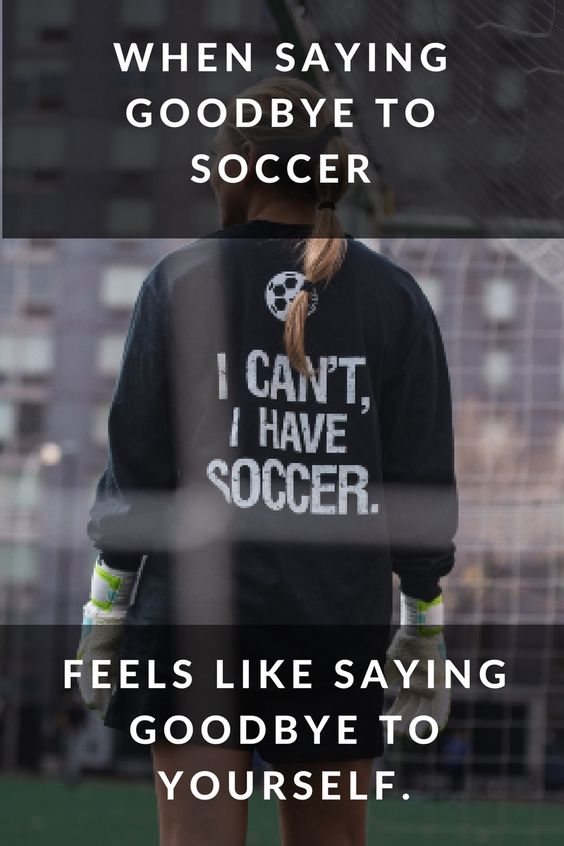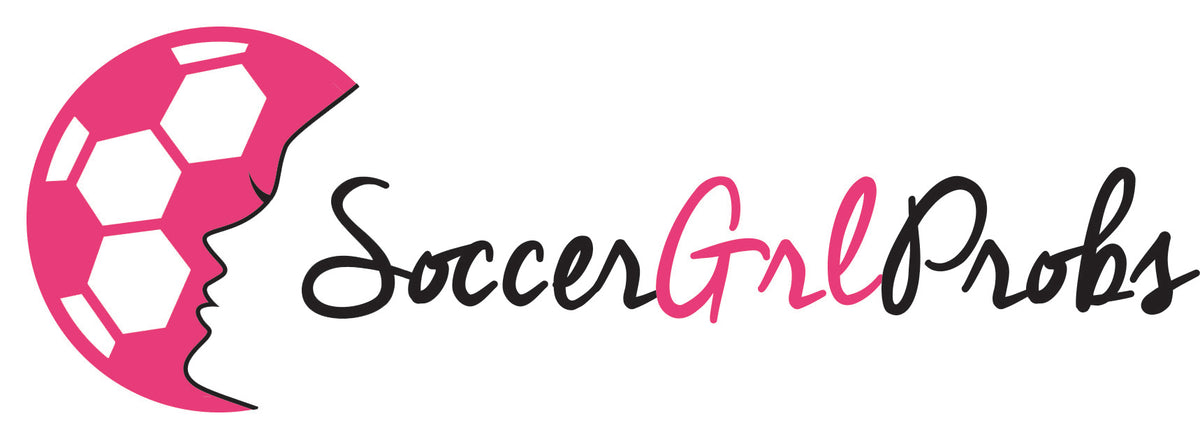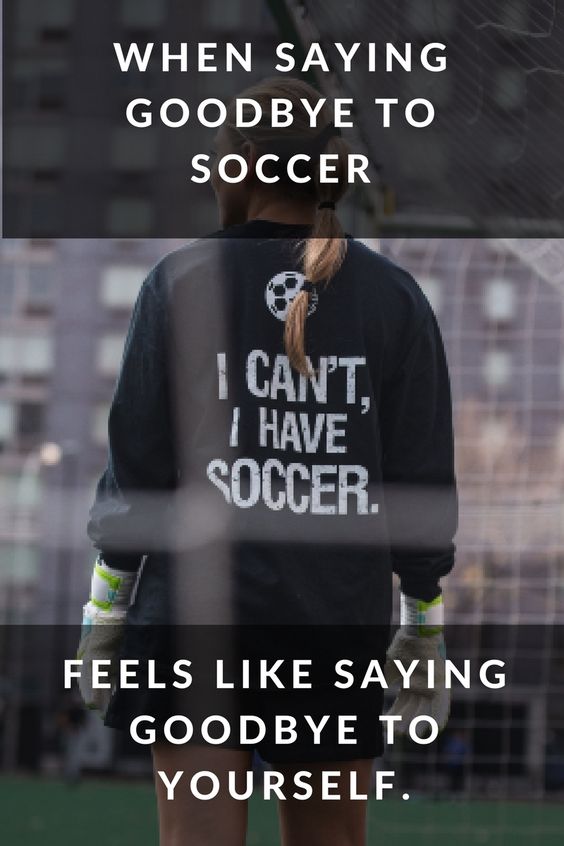

At the time I am writing this, it has been one year, three months, twelve days, seven hours, and give or take thirty minutes since I played in the last game of my soccer career (not that I’m counting or anything).
But more than that, at the time I am writing this, it has been one year, three months, twelve days, seven hours, and give or take thirty-one minutes now, and I still haven’t figured out how to not painfully miss being a soccer player, how to not miss everything associated with soccer and my teammates, how to not miss it all when I cared about it all deeper than anything else. And to be honest, I’m not sure I’ll ever figure it out.
However, in that elapsed time, and during the unmitigated hardships I’ve experienced since I stepped off the field and officially “lost” soccer, there are a few things that have become clear in this hazy post-athletic world I currently inhabit.

First of all, like me, many of you have your own amount of time, whether you’ve counted it or not, that you’ve been out of the game, beit by choice, medical reasons, or perhaps just because of the unavoidable end of a life in soccer. But for those of you just now entering the post-soccer experience, I know what you’re going through. For example, maybe you’ve neglected to take care of your body since your last game or practice, you’ve stopped working out, or you don’t eat as much, if at all anymore. Perhaps you’ve tried to convince yourself you enjoy all of the free time you now have, when the reality is all you want is for your afternoons and evenings to consist of soccer and that irreplaceable time with your teammates. Or maybe you’ve lost all motivation or thrown yourself into another task hoping it will fill the hole soccer left. Or maybe you just feel like you’re not the same person anymore, that you’re not worth anything now that soccer is gone, or that you can’t be around your former teammates because it’s too hard and they seem so happy, or you feel like you have no friends, or you want your team to lose because you are no longer on the team. Or what if you’ve become depressed because of all or any of these reasons, and especially because you can not fathom how you’ve lost all the muscle you worked so hard for so long to maintain, and at the end of the day you really just don’t understand why this whole transition thing is so hard, because nobody warned you, and you did not expect it to be like this.
Well I’ll tell you this, friend: you are not alone. You really aren’t. In fact, I’m right in this with you, just as everybody that stopped playing before us has been (and maybe still are).
So I think it’s time we talk about it. I think it’s time we talk about this pain and this confusion. Not just talk about the love and respect we have for the sport now that it has ended, or how much we want the younger generation to appreciate it while it’s there, but really talk about what it’s like to live in the time just after the game is officially over.

We, the post-soccer crew, are a grieving group of humans right now, and I think it’s important that we allow ourselves this time to grieve. The relationships with not only our sport, but with the seventeen to thirty other girls on our team, plus coaches, plus other friendships that existed because of soccer, plus our bodies and our emotions, plus our self-worth have severely changed. Indeed these relationships have changed so much that it in order to survive, to some extent, we must allow ourselves time to grieve these losses and that part of our life - our now distant past that was so recently our exciting and fulfilling present. We are in a transition of unmatched discomfort. We are in a transition that makes us ambiguous.
I know that personally, I am deep in the grieving process; I am deep in my own ambiguity. In fact, I’m so deep that I am beginning to come out of it. Not fully, but just enough that I can look back and articulate what exactly I’m still experiencing. Of course, I know that’s not the case for all of you, so I guess I should be clear in saying that I’m not writing this to tell you it’s going to be okay and you’ll come out on the other side (even though that is what believe). That is not my intent. I recognize it is impossible to see things that way when all you are is lost in the grief. Instead, the purpose of this post, of my TEDx talk, of this conversation in general, is that I, and anybody who has been through this, want to tell you it is okay to sit fully in the space of uncertainty. It is okay to feel wholly lost. It is okay to not be okay. Yours, mine, all of our struggles are, in fact, beautiful.
But the beauty doesn’t come without recognizing that all the strength you feel you’ve lost now that soccer is over actually still fully circulates within you. The only difference is now instead of it being a visible, external strength, the muscles or the accolades or your confidence, your strength is entirely internal. It is the ability to not fall apart, to barely keep your head above water. It is a strength that only you can feel, and I know right now it doesn’t feel like much. But it is a your strength nonetheless, undeniably yours and undeniably strong.

For some of you reading this, you haven’t yet lived in this experience -- but you will, no matter if you play as long as Christie Rampone, it is inevitable. But don’t fear losing soccer, because what I’ve learned is that while my post-soccer experience has been this hard; it is because I loved it that much. Now, that comment doesn’t necessarily make those of us currently in the post-soccer world feel better, but it at least makes sense, because none of us would give any of the memories back, even though we’re hurting. So to you all still in the game, love it fully, just like you have been, then just as fully, embrace how much you miss it.
So then we’ve arrived at maybe the toughest question yet: how do we continue our relationship with soccer when it is both so tough to watch, yet so hard to stay away from? Well, it’ll be different for everyone. For some, we’ll coach. We’ll pass on the lessons we’ve learned from the coaches who also lost soccer at one point. We will instill in our players the same love and passion for the game our coaches instilled in us - the passion we’ve never lost and neither did they. For others, we’ll be the loudest parent on the sideline and watch as our daughters develop the same relationship with soccer we so deeply cherished, knowing that one day she too will lose it; and since we will not be able to protect her from that, we’ll foster her in the sport and teach her to be strong, because it is all so worth it. And for the rest of us, maybe the way we continue is simply by often revisiting memories, laughing, and that’s all.
Whatever way your relationship with soccer eventually continues, I think for now, it’s okay to grieve it, to miss it completely - the whole of it - but also to know the person you are in this space, while perhaps unrecognizable, is every bit as powerful as the person you were while you played.
And I promise you, that is beautiful.



Alanna,
Thank you for putting what I am feeling into words. It has been a little less than 6 months when I last played soccer competitively and it has been so hard to watch my friends continue on to playing in college while I can’t. In my four years of high school soccer I got seriously injured every single year, to the point that I still am doing rehab for my last injury (which I got in April). While none of my injuries were my ACL, I’ve pretty much done everything else that I can to my leg and because of that I had to make the choice to not play collegiately. All of my other friends who are not playing soccer this year seem so okay with it and it felt like no one else understood the feeling of watching all the games because you love it but at the same time not wanting to go because you could not be on the team and playing. So Thank you for finally putting into words what I was feeling and for letting me realize that others are going through the same thing I am going through. THANK YOU!